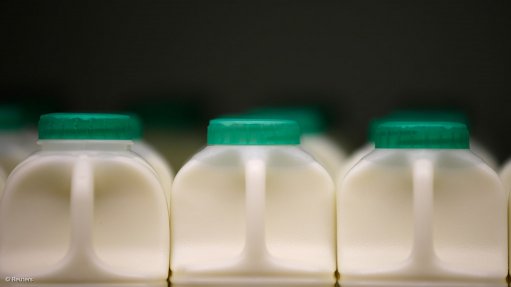
While consumers continue to grapple with high food prices triggered by the current drought and the ailing economy, milk will soon be added to the list of costly staple foods, according to FNB senior agricultural economist Paul Makube.
In a statement published Tuesday, Makube noted that dairy farmers were facing production shortages and would likely run into supply issues in the coming months.
He pointed out that some dairy processors were already paying commercial farmers an average of 60c/ℓ more for milk to ensure consistent supply in winter.
Further, because poor pasture conditions – exacerbated by the drought – and the sharply higher grain prices had squeezed margins at farm level, the increase would help improve the situation for farmers.
Another price increase was expected in May, which would hike operating costs for the entire milk value chain, leaving retailers with no choice but to increase the price that consumers pay for milk and dairy products.
“Most dairy farmers are still recovering from the impact of the drought and will not be able to produce enough milk in the short term,” he explained.
Makube added that South Africa sourced certain dairy products from other countries, which would not help alleviate increasing prices. The weaker rand made imports more expensive, despite lower international prices.
The electricity tariff increase, which came into effect last week, would also severely drive up input costs for farmers and milk processors, as they relied heavily on energy-intensive equipment.
“On a positive note, the recent rains across the country in the past few weeks will go a long way to improve grazing conditions in the short term,” Makube noted, adding that the return of normal weather patterns in the new crop season would enable farmers to rebuild their herds and improve production levels.
This would play a key role on stabilising the price of milk and ither dairy products in 2017.
Makube further pointed out that it was important for commercial and small-scale dairy farmers to explore sustainable and technology-driven means to reduce energy consumption and costs, as this had a huge impact on their profit margins.
“For instance, some commercial farmers are successfully using alternative energy solutions like solar power during peak hours, when tariffs are at their highest. When implemented in conjunction with milking schedules, solar power can go a long way to reduce operating costs for dairy farmers,” he concluded.